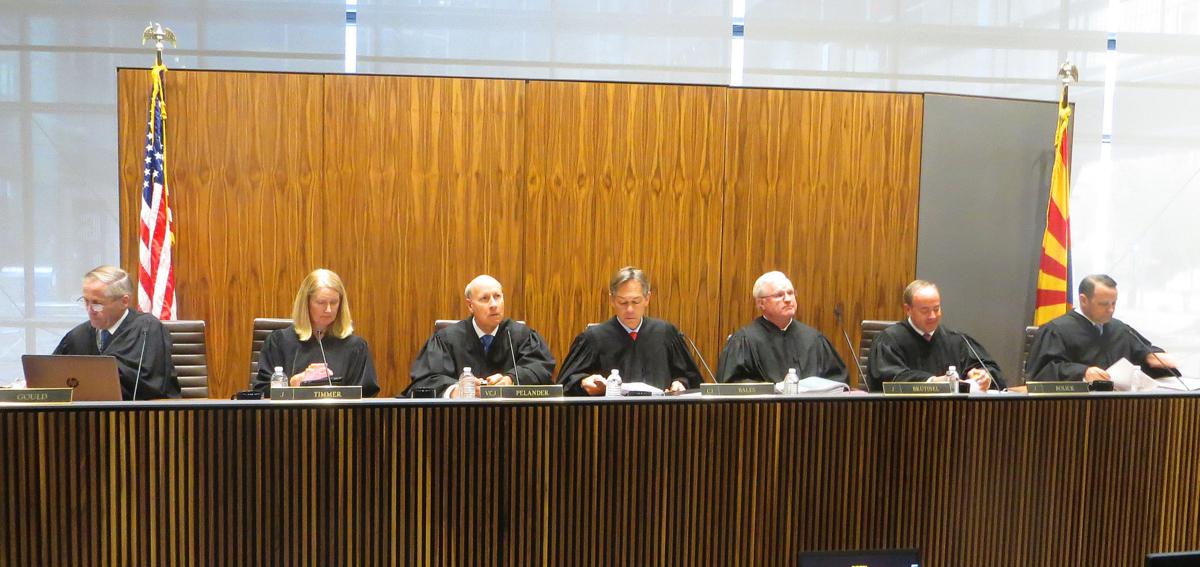PHOENIX — The state’s new higher minimum wage is here to stay.
Without comment late Tuesday, the Arizona Supreme Court unanimously rebuffed a bid by business groups to void the voter-approved law.
The ruling leaves the current minimum wage at $10 an hour, up from $8.05 last year. It also means the minimum will increase by voter-approved steps to $12 an hour by 2020. After that, increases will be linked to inflation.
About 700,000 of the state’s more than 2.5 million workers are expected to benefit when the wage increase is fully implemented in 2020.
The measure approved by state voters in November and upheld Tuesday by the high court, Proposition 206, also mandates for the first time that employers provide at least three days of paid leave for workers every year. Supporters of the measure, which took effect Jan. 1, said more than 900,000 Arizonans worked in jobs where there was no paid leave.
Business groups led by the Arizona Chamber of Commerce and Industry argued that the proposition violated a constitutional provision that any ballot measure requiring the state to spend more money also include a source for that revenue, such as a higher tax.
Strictly speaking, Proposition 206 exempts state government from paying its workers the higher wage. But state agencies said there will be a cost. Private firms the state uses to provide services such as in-home care for the medically needy were being paid based on contracts negotiated before the wage hike. And some of those providers said they cannot boost wages unless the state spends more money.
But in a hearing last week, Supreme Court justices questioned whether these are the kind of direct costs the Arizona constitutional provision is designed to cover. They clearly concluded they are not.
The chamber also argued there were, in fact, direct costs to the Industrial Commission of Arizona, which polices state labor laws and must write new rules to deal with the paid-leave policy. That contention drew skepticism last week from two of the justices, who said there’s no evidence the commission can’t pay those minimal expenses with its existing budget.
Chamber President Glenn Hamer said he’s disappointed. But he said that, if nothing else, Tuesday’s ruling puts the issue to bed and now employers know — and can plan for — their obligations.
Attorney General Mark Brnovich, who defended the proposition against the chamber’s challenge, praised the court ruling.
“As attorney general, my job is to uphold the rule of law,” he said. He criticized the business interests for trying to use constitutional arguments to kill what voters approved last November on a 58-42 margin.
“The constitution is designed to protect our rights,” Brnovich said. “It is not a tool to be used to undermine the will of the people.”
Gov. Doug Ducey, who publicly opposed the wage increase, said late Tuesday, “The Supreme Court has spoken. We’re going to follow the law.”
The justices, who heard the arguments just a week earlier, promised a full explanation of their unanimous ruling in the coming weeks.





